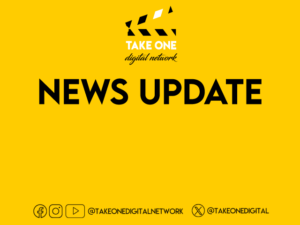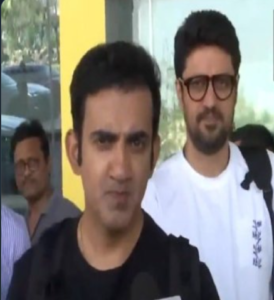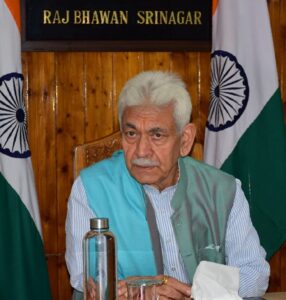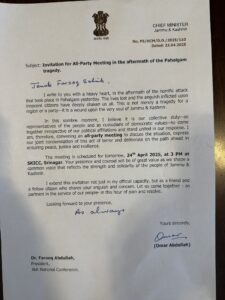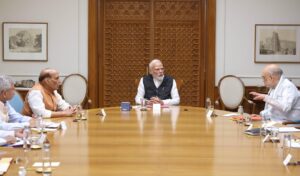Gujarat’s tribals embracing progress through inclusive policies
Gir Somnath (Gujarat) [India], October 10 (ANI): The Siddi community in Gujarat is a unique ethnic group with African ancestry, settled in the regions of Junagadh and Gir Somnath.
Despite their rich cultural heritage, the Siddi community has faced socioeconomic challenges. In 2003, the Siddis were officially recognized as a Scheduled Tribe in Gujarat, making them eligible for various government benefits such as scholarships, job reservations, and financial assistance.
The government’s targeted efforts to integrate the community into mainstream development reflect its commitment to inclusive growth.
Khelan, a Siddi tribal member, said, “In our village (Jambur), around 70 per cent of the people have benefited from the Awas Yojana. Under the Pradhan Mantri Jeevan Jyoti Bima Yojana, 80 per cent have been insured. Under the Pradhan Mantri Suraksha Bima Yojana, around 90 per cent of the people have been insured. One hundred per cent of the population also has Ayushman Cards, and many people have received benefits from that.”
Majgul Abdul Ismail, another Siddi tribal member, stated, “The BJP government and PM Modi have directly supported us. Earlier, our boys were not much into sports. However, now many of them are receiving sports training in Bhavnagar, Nadiad, Saputara, and other areas, including Kodinar. I am sure we’ll make a mark in the Olympics; they are being trained with that goal in mind.”
Majgul Bilalbhai Abdul, another Siddi tribal member, added, “We receive assistance for housing from the government, as well as grants for the education of our children, including for higher education. There is no problem with water and no problem with electricity. We are very happy with this government.”
As Gujarat celebrates Vikas Saptah to commemorate 23 years of Prime Minister Narendra Modi’s leadership, one of the standout programs initiated under his tenure as Chief Minister, the Vanbandhu Kalyan Yojana, has become a cornerstone for the development of Gujarat’s tribal communities.
Launched in 2007, the scheme’s 10-Point Program focuses on comprehensive tribal development through employment generation, quality education, and infrastructure development.
Today, nearly 15 per cent of the state’s budget is allocated to its tribal districts, reflecting a robust commitment to uplift Gujarat’s 89.17 lakh tribal population.
Thanks to these efforts, Gujarat’s tribal literacy rate has risen to 62 per cent, with improved access to housing, healthcare, and sustainable income sources.
Schools such as the Ashram Shalas, run by the Bhil Seva Mandal with strong government support through scholarships and grants, have played a crucial role in making quality education accessible to tribal children.
These scholarships cover tuition fees, books, uniforms, and other essentials, offering a lifeline of hope and progress for the state’s tribal communities.
Mukesh Parmar, Secretary of the Bhil Seva Mandal, said, “Many of these students come from families of laborers, small-scale farmers, or migrant workers. I, too, benefited from these opportunities made possible through government schemes.”
The government’s efforts have also empowered tribal women. In 2019, a group of 15 women from the Tadvi tribal community were given the opportunity to run a cafe at the Arogya Van in Kevadiya.
Their group, ‘Jai Gayatri,’ received an initial grant of 10 lakh rupees to start their business.
Each of these women now earns a monthly salary of 8,000 rupees, with the kitchen serving traditional Gujarati dishes.
The proceeds from their sales are deposited into the group’s collective account, helping them sustain their livelihoods. They boast of serving esteemed visitors, including former President Ram Nath Kovind, PM Modi, and even Bill Gates.
Premila Ben Tadvi, a member of the Arogya Van Cafe, said, “The tribal women did not work outside the home earlier. With PM Modi converting this region into a tourism hotspot, it has led to our economic transformation as well. We also feel proud running this cafe. We women have been working for the past five years. The income we receive is used for our children’s education and other needs.”
Gujarat’s journey toward tribal development, initiated by PM Modi and carried forward by successive leaders, reflects a vision of inclusive, people-centric governance.
From education and healthcare to employment and cultural upliftment, the state’s commitment to empowering its tribal population remains a model for holistic development.

